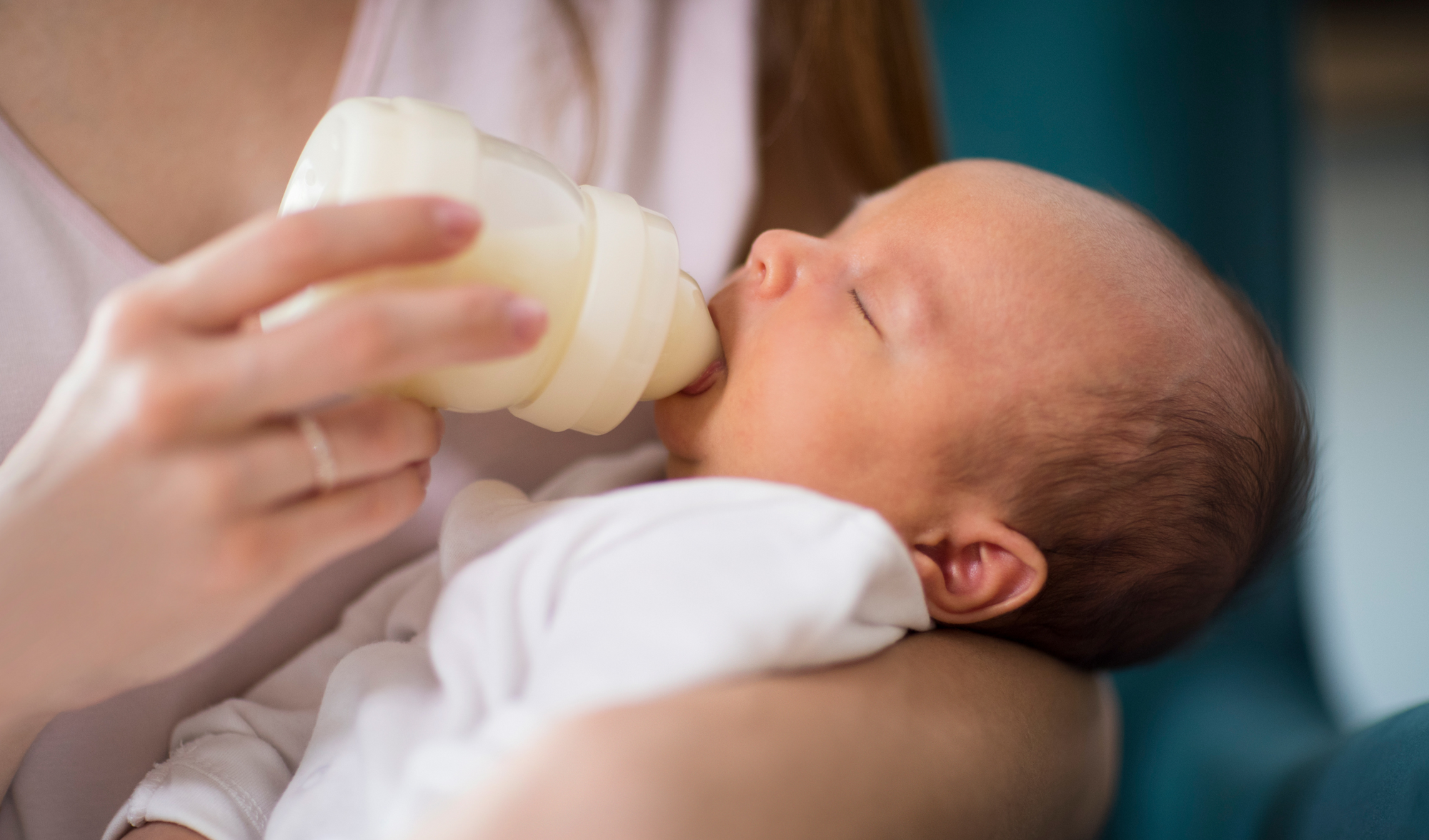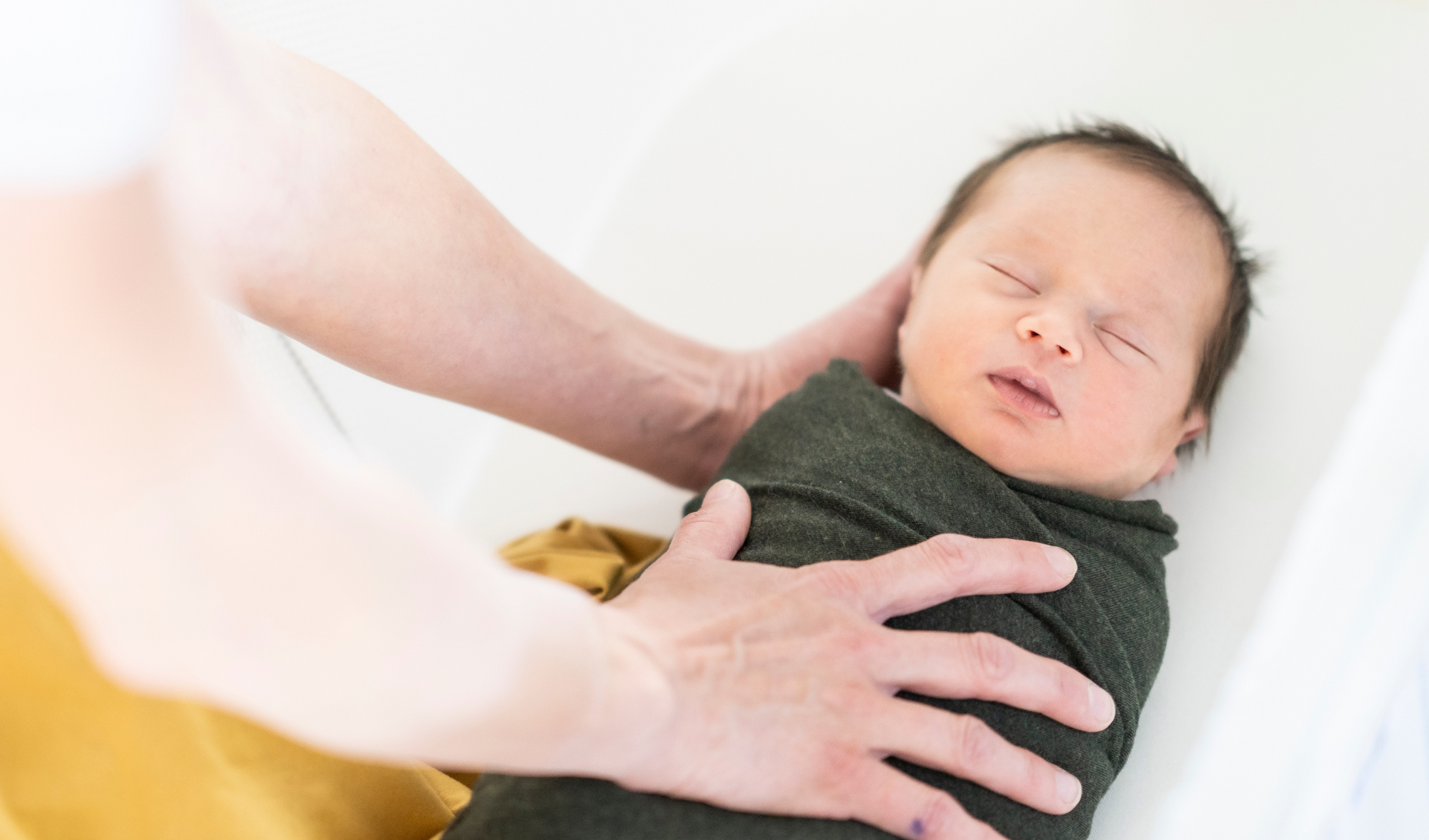Are you looking forward to the day your little one says "mama" or "dada?" Find out when babies begin to babble and speak and learn how to improve the learning of language for your child.
Your baby's primary coping tool and only means of communication so far has been crying. Luckily - for both of you, they will soon make a big jump in the learning of language which will boost their ability to express themselves with words.

Talking and Developmental Milestones
Once your baby begins to "talk" they will get great pleasure in flaunting their budding language skills. Sure, you have no idea what they are saying, but in the end, gibberish will lead to real words. Your child’s chatter also gives you a snapshot into their cognitive development, as they start to memorize and recall sounds, take time to think about what words they want to say and learn how to use verbal and nonverbal actions to express their wants and needs.
There's always a social dimension to babbling. Long before she says a word, your baby learns the rules of language and socialization by watching you. Your little one knows how you respond to their words, and they watch how you talk to others. Babies are hardwired to learn a language, and to imitate how others engage with them verbally.
Stages of Verbal Development in Babies
Your baby's verbal skills will develop through phases as their vocal system matures and they become gradually linked to their surroundings. First, vowel-like sounds at birth move to ‘coos’ and ‘goos’ at 2 to 3 months and to babbling at around 4 months of age.
First babbles often include "p," "b," and "m" sounds, which are produced by simply putting the lips together. So you will hear lots of "puh puh puh," "buh buh buh," and "muh muh muh" sounds initially.
Here are some ways to help your baby's speech and language development:
- Engage in a conversation by talking to your baby
- Use different tones and syllables when you talk so that they will try to imitate you and learn new sounds
- Pause after you say something so that your baby has time to process your words and "respond"
Research shows that the quantity of words spoken to a baby positively affects language development, so use proper words to talk, read, and sing to your baby.
When Do Babies Say Their First Word?

Once your baby has practiced using their lips and tongue to form sounds, usually around 6 to 7 months old, their babbles will become more speech-like.
It can appear as if your little one is blurting out odd words, but if you pay careful attention, as they speak, you will notice shifts in tone. At the end of a string of babble, their voice may raise, as if your toddler were asking a question. You'll also notice that your toddler may pause after saying what's on their mind, seemingly waiting for a response.
Focus on WHAT your baby "says" over HOW they say it; if their speech doesn't make it obvious, they will make it clear with their facial gestures and body language. A big smile and jumping up and down as they "talk", presumably means they’re sharing exciting news. On the other hand, if there is a frown on their face and your toddler looks at you as they use a high-pitched accent, it could mean they are angry or frustrated with you.
When do babies start talking clearly and fluently?
Towards the end of your baby’s first year, they'll babble in longer strings of varied short nonsense syllables, using the intonation and rhythm mimicking of an adult. This level of jargon is a reference to the first words of speech, which typically happen around the first birthday of your child. "Dada," "mama," "baby," "ball," "doggie," "book," and "hi" are the most common first words.
When to See a Doctor
Babies hit developmental milestones at various times. As soon as the conversation of your baby continues and they interact with you and others, there is definitely no reason to worry. But if your child ceases to ‘talk’ or regresses at any stage in their speech and language development, or if sounds do not appear by the time they’re 15 months old, arrange an appointment with your pediatrician and a speech-language pathologist. Also, call your local public school at any age—the earlier a child gets help for a speech or language problem, the better.
Read our other blogs on baby milestones:


